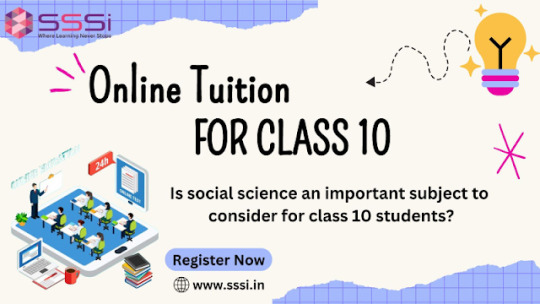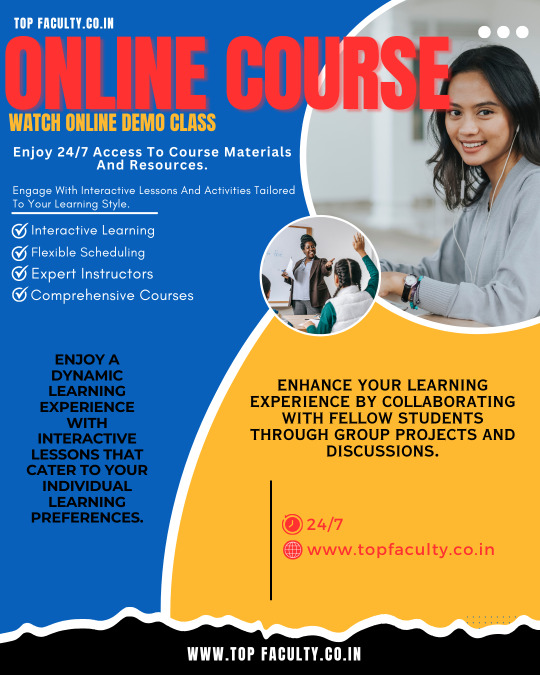#Virtualeducation
Explore tagged Tumblr posts
Text

The Virtual Worlds Best Practices in Education Conference starts on March 23rd at 8am PT.
Learn more: https://www.vwbpe.org Destination: https://secondlife.com/destination/vwbpe VWBPE YouTube channel: https://www.youtube.com/@VWBPE
Don’t miss Second Life's VP of Product, Grumpity Linden, and VP of Product Operations, Patch Linden, on the “What’s up at the Lab” discussion on March 23rd at 12pm PT! https://www.vwbpe.org/conference/vwbpe23-program
#SecondLife#VirtualWorld#Metaverse#VWBPE#VWBPE23#VirtualEducation#OnlineLearning#LindenLab#VirtualPhotography
3 notes
·
View notes
Text
GLA University Online
GLA University Online offers online programs for students seeking a convenient education. Courses cover a variety of areas including business, engineering and management. Register online, participate in virtual courses, and access learning materials from anywhere. Get an accredited degree that can help advance your career.
0 notes
Text
The Evolution of Virtual Education
Virtual education, once a niche alternative to traditional learning, has transformed into a mainstream mode of education embraced globally. This evolution has been driven by technological advancements, pedagogical innovations, and shifting societal needs. Let's explore the journey of virtual education from its nascent stages to its current state and envision its future trajectory.
The Early Days: Correspondence Courses and Tele-Education
The seeds of virtual education were planted long before the internet era. In the 19th century, correspondence courses allowed students to receive educational materials and submit assignments via mail. These courses provided opportunities for those unable to attend traditional schools due to geographic or personal constraints.
The mid-20th century saw the introduction of tele-education. Educational television programs and radio broadcasts began to supplement traditional learning. For instance, in the 1960s, the Public Broadcasting Service (PBS) in the United States aired educational content that reached millions of households, laying the groundwork for future virtual learning initiatives.
The Internet Revolution: The Birth of Online Learning
The advent of the internet in the late 20th century revolutionized virtual education. Early online courses, offered by institutions like the University of Phoenix in the 1990s, demonstrated the potential of the web as a learning platform. These courses primarily relied on text-based content and email communication, but they opened the door to a new era of accessibility and flexibility in education.
The proliferation of the World Wide Web in the 2000s enabled more sophisticated online learning platforms. The introduction of Learning Management Systems (LMS) like Blackboard and Moodle allowed educators to create structured courses with multimedia content, discussion forums, and assessment tools. This period also saw the rise of online degree programs, making higher education accessible to a broader audience.
The Rise of MOOCs: Democratizing Education
The 2010s marked a significant milestone with the emergence of Massive Open Online Courses (MOOCs). Platforms like Coursera, edX, and Udacity offered free or low-cost courses from prestigious universities to learners worldwide. MOOCs democratized education, breaking down barriers of cost and location.
These platforms leveraged video lectures, interactive quizzes, peer assessments, and community forums to create engaging and scalable learning experiences. MOOCs attracted millions of learners, ranging from high school students to working professionals, and expanded the reach of institutions like Harvard, MIT, and Stanford.
Despite their popularity, MOOCs faced challenges such as low completion rates and the need for credentialing. In response, providers began offering paid certificates, micro-credentials, and pathways to degree programs, blending the strengths of MOOCs with traditional educational structures.
The Impact of COVID-19: Accelerating Virtual Education
The COVID-19 pandemic in 2020 served as a catalyst for the rapid expansion of virtual education. With schools and universities worldwide forced to close their doors, educators and students had to adapt quickly to online learning environments. This global experiment in remote education highlighted both the potential and the limitations of virtual learning.
Schools and universities scrambled to adopt or enhance their LMS, integrate video conferencing tools like Zoom, and develop digital resources to support teaching and learning. While some institutions struggled with the transition, others seized the opportunity to innovate. Teachers experimented with flipped classrooms, asynchronous learning, and hybrid models to maintain educational continuity.
The pandemic also underscored the digital divide, revealing disparities in access to technology and the internet. Addressing these inequities became a priority, prompting initiatives to provide devices and connectivity to underserved communities.
Technological Innovations: Shaping the Future of Virtual Education
As we look to the future, several technological innovations are poised to further transform virtual education:
Artificial Intelligence (AI) and Machine Learning: AI-powered tools can personalize learning experiences by adapting content to individual needs, providing real-time feedback, and automating administrative tasks. Intelligent tutoring systems, like Carnegie Learning, use AI to offer personalized guidance and support to students.
Virtual and Augmented Reality (VR/AR): Immersive technologies like VR and AR can create engaging and interactive learning environments. For example, medical students can practice surgeries in a virtual operating room, and history students can explore ancient civilizations through augmented reality.
Blockchain Technology: Blockchain can enhance the security and verifiability of educational credentials. This technology allows for the creation of digital diplomas and certificates that are tamper-proof and easily shareable.
Gamification: Integrating game elements into learning can boost motivation and engagement. Platforms like Kahoot! and Duolingo use gamification to make learning fun and interactive, encouraging students to achieve their educational goals.
Learning Analytics: Data analytics can provide insights into student performance and learning behaviors. Educators can use this data to identify at-risk students, tailor interventions, and improve instructional strategies.
The Human Element: Balancing Technology and Pedagogy
While technology is a powerful enabler, the human element remains crucial in virtual education. Effective online teaching requires a balance between technological tools and sound pedagogical practices. Educators must design courses that foster interaction, collaboration, and critical thinking.
Building a sense of community in virtual classrooms is essential for student engagement and retention. Strategies such as discussion forums, group projects, and virtual office hours can help create connections between students and instructors. Moreover, professional development for educators is vital to equip them with the skills needed to navigate and leverage digital tools effectively.
Conclusion: The Ongoing Evolution
The evolution of virtual education is a testament to the adaptability and resilience of the educational sector. From correspondence courses to MOOCs, and from the challenges of the COVID-19 pandemic to the promise of emerging technologies, virtual education has continuously evolved to meet the changing needs of learners.
As we move forward, it is essential to focus on inclusivity, accessibility, and quality in virtual education. By harnessing the power of technology while maintaining a student-centered approach, we can create a future where learning is truly global, personalized, and lifelong. The journey of virtual education is far from over, and its potential to transform lives and societies is boundless.
#VirtualEducation#OnlineLearning#EdTech#EducationRevolution#DigitalLearning#MOOCs#RemoteLearning#EdTechInnovation#FutureOfEducation#Elearning#VirtualClassroom#EdTechTrends#LearningTechnology#Education4All#HybridLearning#AIinEducation#EdTechFuture#VirtualLearning#EdReform#InclusiveEducation
1 note
·
View note
Text

Manipal University Online MBA prepares you to stand out as a leader in today’s competitive world. Learners can choose from 10 career-focused electives such as HR, Finance, Marketing, Operations, International Business, and Analytics & Data Science to create successful career paths in the domain and industry of their choice.
#ManipalUniversityOnlineMBA#OnlineMBAProgram#DistanceLearning#HigherEducation#VirtualEducation#CareerAdvancement
1 note
·
View note
Text

Is Social Science an Important Subject to Consider for Class 10 Students?
Moreover, it covers all the current affairs on history, geography, environment, civics etc. In addition to this, studying sociology students can learn about the functions of societies, the social impacts on shaping individual’s lives and the potentiality of social relationships.
Visit us:- https://bestonlinelearningclasses01.blogspot.com/2024/04/is-social-science-important-subject-to.html
#Class10#OnlineClasses#Tuition#Education#RemoteLearning#DigitalLearning#VirtualEducation#OnlineTutoring#StudyFromHome#Class10Tuition#Elearning
1 note
·
View note
Text
Explore Interactive Courses, Learn from Experts, and Enjoy Flexibility with Our Online Platform!

Embark on a transformative learning journey with our online platform, offering interactive courses, expert instructors, and flexible scheduling.
Immerse yourself in a wealth of knowledge with round-the-clock access, collaborative learning features, and practical applications.
Receive personalized guidance, earn certifications, and access career assistance to enhance your skills and propel your career forward.
Join us today and discover a new approach to learning that adapts to your lifestyle and ambitions!
#OnlineLearning#InteractiveCourses#ExpertInstructors#FlexibleScheduling#ComprehensiveLearning#24/7Access#CollaborativeLearning#PracticalApplications#PersonalizedGuidance#Certifications#CareerAssistance#E-Learning#VirtualEducation#SkillEnhancement#ProfessionalDevelopment#EducationalPlatform#DigitalLearning#RemoteEducation#FlexibleLearning#LifelongLearning
0 notes
Text

Experience the power of Microsoft Certification Training Online! Enhance your career with adaptable learning, low-cost solutions, and self-paced courses. Validate your skills, stay ahead in the tech industry, and open up a world of opportunities.
#MicrosoftCertification#OnlineTraining#CareerSuccess#ProfessionalDevelopment#TechnologySkills#SelfPacedLearning#CostEffectiveTraining#VirtualEducation#SkillsValidation#AzureCertification
0 notes
Text

"🎓 Unlock Your Potential with Online Education! 🌟
Ready to embark on a journey of learning and growth from the comfort of your own home? Dive into the world of online education and discover endless opportunities to expand your knowledge and skills. From captivating courses to interactive tutorials, the digital realm offers a wealth of resources at your fingertips. Whether you're pursuing a new hobby, advancing your career, or simply exploring new subjects, online education empowers you to learn on your own terms, anytime, anywhere. Join the revolution of lifelong learning today!
#OnlineEducation#Elearning#DistanceLearning#DigitalLearning#RemoteLearning#VirtualEducation#EdTech#OnlineCourses#LearnFromHome#SkillBuilding#EducationalTechnology#LifelongLearning#KnowledgeIsPower#StudyFromHome#OnlineLearningPlatform#EducationForAll#RemoteEducation#StayConnectedAndLearn
0 notes
Text
What is Virtual education for kids?

Virtual or online education allows students to experience their education outside the traditional classroom environment. Virtual education can work for students' time as well as their expenses. In virtual education for kids can learn anything at their own convenient time. Courses virtual education helps children to understand their courses easily. In virtual education, children can easily talk to each other, discuss about their problems and upload work or assignments given by the teacher. Is. Because they lower education costs and increase accessibility, virtual classrooms will only become more and more important. Virtual classrooms often use interactive and multimedia tools such as videos, gamified activities, and virtual simulations. These engaging tools increase student interest and motivation, leading to more learning and better retention of information. Which helps children to understand easily. Virtual classrooms encourage children to work together, talk, and peer learn.
0 notes
Text
The Future of Learning: A Wild Ride into the Unknown! 🚀

Hey there, knowledge enthusiasts and cyber-scholars! Buckle up because we're about to embark on a thrilling rollercoaster into the dazzling realm of the future of education! 🎢✨
Picture this: holographic textbooks, virtual reality lectures, and exams that feel more like a game show than a pop quiz. The future of education is so bright, you might need augmented reality shades just to keep up! 😎
1. Hologram Homework Helpline:
Say goodbye to those late-night cries for help on algebra problems. In the future, our holographic homework helpline is here to save the day! A friendly hologram tutor pops up in your room, armed with infinite patience and an arsenal of dad jokes to make learning a breeze.
"Why did the math book look sad? Because it had too many problems!"
2. Virtual Reality Field Trips:
Admit it – field trips were the absolute highlight of school. But imagine exploring the Amazon rainforest or the Great Wall of China without leaving your bedroom! Virtual reality field trips will take you places even the magic school bus couldn't reach. Just don't forget to wear your VR explorer hat.
3. Emoji-based Grading System:
Goodbye, red pen of doom! The future is all about communicating in the universal language of emojis. 🌟 for an A+, 🤔 for a B, and 🍕 for a grade that says, "Hey, at least you tried!" It's time for students and teachers alike to embrace the colorful world of emoji-based education.
4. AI Personalized Learning Assistants:
Meet your new BFF – the AI Personalized Learning Assistant! This friendly AI buddy knows your strengths, weaknesses, and probably your favorite pizza topping. It tailors lessons just for you, making sure you're always on the path to becoming the Einstein of the digital age. Plus, it's available 24/7 for those midnight "I forgot the quadratic formula" emergencies.
5. The Grand Finale: Exams as Game Shows!
Why stress about exams when you can turn them into a dazzling game show extravaganza? Imagine walking into a room with flashing lights, a charismatic host, and a cheering audience. "Welcome, ladies and gentlemen, to the ultimate brain showdown – The Quiztastic Quest!" Get ready to answer questions, solve puzzles, and maybe even win a lifetime supply of virtual confetti.
In this brave new world of education, learning is not just a task but an adventure. So, future scholars, get ready for a wild ride where textbooks are holograms, exams are game shows, and the pursuit of knowledge is as exciting as a trampoline park with no weight limit! 🚀📚
Cheers to the future of education – where laughter is the best study aid, and learning is the greatest adventure of all! 🎓✨
#Education #VirtualEducation
1 note
·
View note
Text
Today we are shining a spotlight on Marly Milena, a creativist known as Niela Miller in the physical world. At the age of 88, Marly has been bringing years of her educational experience and expertise to build communities in Second Life!
Read her interview ➡️ https://second.life/spotlight-MarlyMilena
#SecondLife#SecondLifeSpotlight#VirtualWorld#Metaverse#MarlyMilena#NielaMiller#VirtualEducation#VWEC#VWBPE
2 notes
·
View notes
Photo

𝐓𝐡𝐞 𝐄𝐝𝐮𝐜𝐚𝐭𝐢𝐨𝐧 𝐲𝐨𝐮 𝐰𝐚𝐧𝐭. 𝐓𝐡𝐞 𝐀𝐭𝐭𝐞𝐧𝐭𝐢𝐨𝐧 𝐲𝐨𝐮 𝐝𝐞𝐬𝐞𝐫𝐯𝐞. 𝐓𝐡𝐞 𝐩𝐞𝐫𝐟𝐞𝐜𝐭 𝐟𝐢𝐭 𝐟𝐨𝐫 𝐲𝐨𝐮. Vittesho is professional to create a virtual learning environment where college students can learn college and out of college topics at home.
2 notes
·
View notes
Photo

Lineup Announcement! Bob Jacobson of Hawaii Rainforest Tea in Kurtistown, Hawaii will be presenting in the Small Tea Grower Festival on Sat. Nov. 28 5-9PM PT. Join our livestream & order your premium experience ticket by 11/23 to receive a box of teas the growers will be presenting including Bob's Spring White tea and 50 grams of fresh 2020 ceremonial matcha! Tickets -> bit.ly/smallteagrowerfestival #virtualeducation #teaeducation #teacommunity #tealovers #teatasting #teafriends #USgrowntea #Hawaiigrowntea #gongfucha #smallbusinesssaturday https://www.instagram.com/p/CHqwyNhgBKv/?igshid=1mq9wuqex1lui
#virtualeducation#teaeducation#teacommunity#tealovers#teatasting#teafriends#usgrowntea#hawaiigrowntea#gongfucha#smallbusinesssaturday
1 note
·
View note
Photo

Is "hybrid" the answer? #Homeschooling is hard, and for the near future, crowded classrooms aren't optimal.🤷🏼♂️ Right now you can Zoom one-on-one with a teacher or tutor, but never meeting someone's gaze is unsatisfying. 👁 This also happens in online dating! I've been told Facetime dates with new people feel more like job interviews than a chance to detect if there's a spark!🔥 If schools offered a hybrid model where half the students are physically in class Monday/Wednesday 🏫while the other half views online 💻 then switch IRL & online groups Tuesday/Thursday—social distancing would be in effect and class sizes would be smaller. There would be accountability as attendance could be recorded whether in real life or virtual. Would this create education-access disparity? Funding would need to be found to make sure all students have needed tools.💰Some parents can work from home, but what about parents who can't? From the 1940s, the idea of the "latchkey kid,"🗝 referred to kids whose parents were at work when kids got home from school. This would be "Latchkey 2.0." 🔑 Online options are common in higher-ed. By exposing students to this hybrid experience it could enable greater success as they move toward high school,🏃🏻♀️and ultimately on to university or technical schools.👩🏻🎓 I miss seeing classmates & making IRL connections with my professors. Face-to-face is important. We don't know how long the "new normal" will persist, but while it continues, hybrid classes already work. It'll be more effort for teachers at first.👨🏽🏫 They'd need to reinvent their lesson plans and workflows, but with a 4-day school week, it could work. Do you know parents who have had to pivot to homeschooling?👩🏫 And are kids missing out because socialization has been removed from the picture?👫 What do you think?! #TGIF! Wishing you all safe and well!🙋🏻♀️ Photos: #beautiful #spring #flowers in #madrona #centraldistrict #seattle #WFH #thenewnormal #newnormal #education #onlineeducation #hybridlearning #hybrid educatio #onlinelearning #hybridclasses #virtualclassroom #virtualeducation #latchkeykids #staysafe #flowerlovers #iloveflowers (at Central District, Seattle) https://www.instagram.com/p/CAhSeyoAwAf/?igshid=111lrect7jqrv
#homeschooling#tgif#beautiful#spring#flowers#madrona#centraldistrict#seattle#wfh#thenewnormal#newnormal#education#onlineeducation#hybridlearning#hybrid#onlinelearning#hybridclasses#virtualclassroom#virtualeducation#latchkeykids#staysafe#flowerlovers#iloveflowers
2 notes
·
View notes
Video
tumblr
Join the free webinar on ‘Digital Transformation of India’s Education System’ with Mr. Shailendar Katyal, Executive Director - Consumer Business, Lenovo India Pvt. Ltd. and Dr. Shalini Advani, Director, Pathways School, on 17th July from 4.30 PM- 5.30 PM IST, where they’ll discuss one of the major (virtual) leap which the Education sector has taken in this new normal.
Register now – bit.ly/tecmageduweb
1 note
·
View note
Text

Online education refers to the delivery of educational content and instruction through the internet, allowing students to access courses, lectures, and resources remotely. It leverages digital technologies, such as video conferencing, online forums, and multimedia materials, to facilitate learning outside traditional classroom settings. Online education provides flexibility, enabling learners to study at their own pace and convenience.
#OnlineDegree#TechDrivenEducation#FlexibleLearning#EdTechSolutions#VirtualEducation#OnlineAcademy#WebinarLearning#EducateOnline#LearnAnywhere#InnovativeEdTech
1 note
·
View note